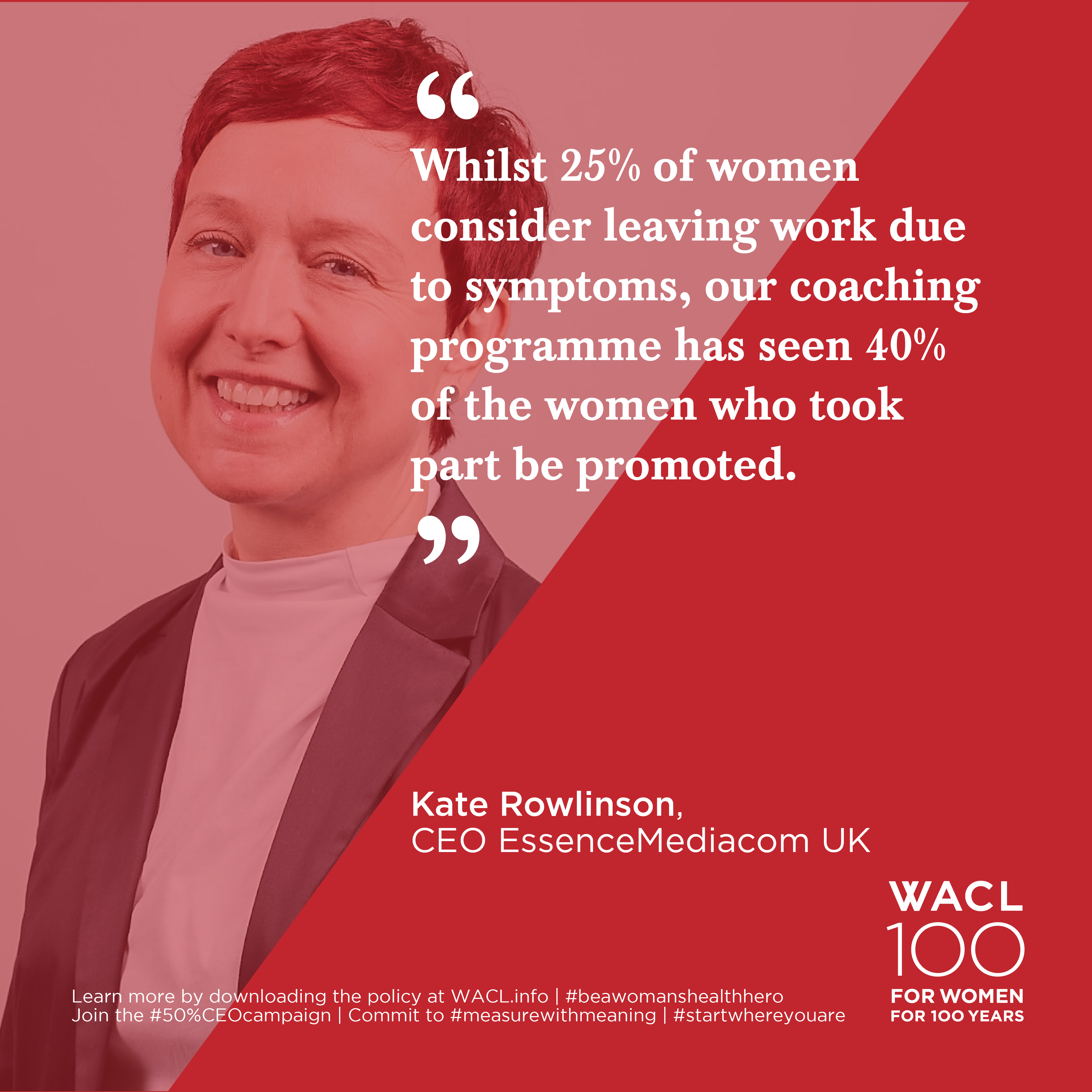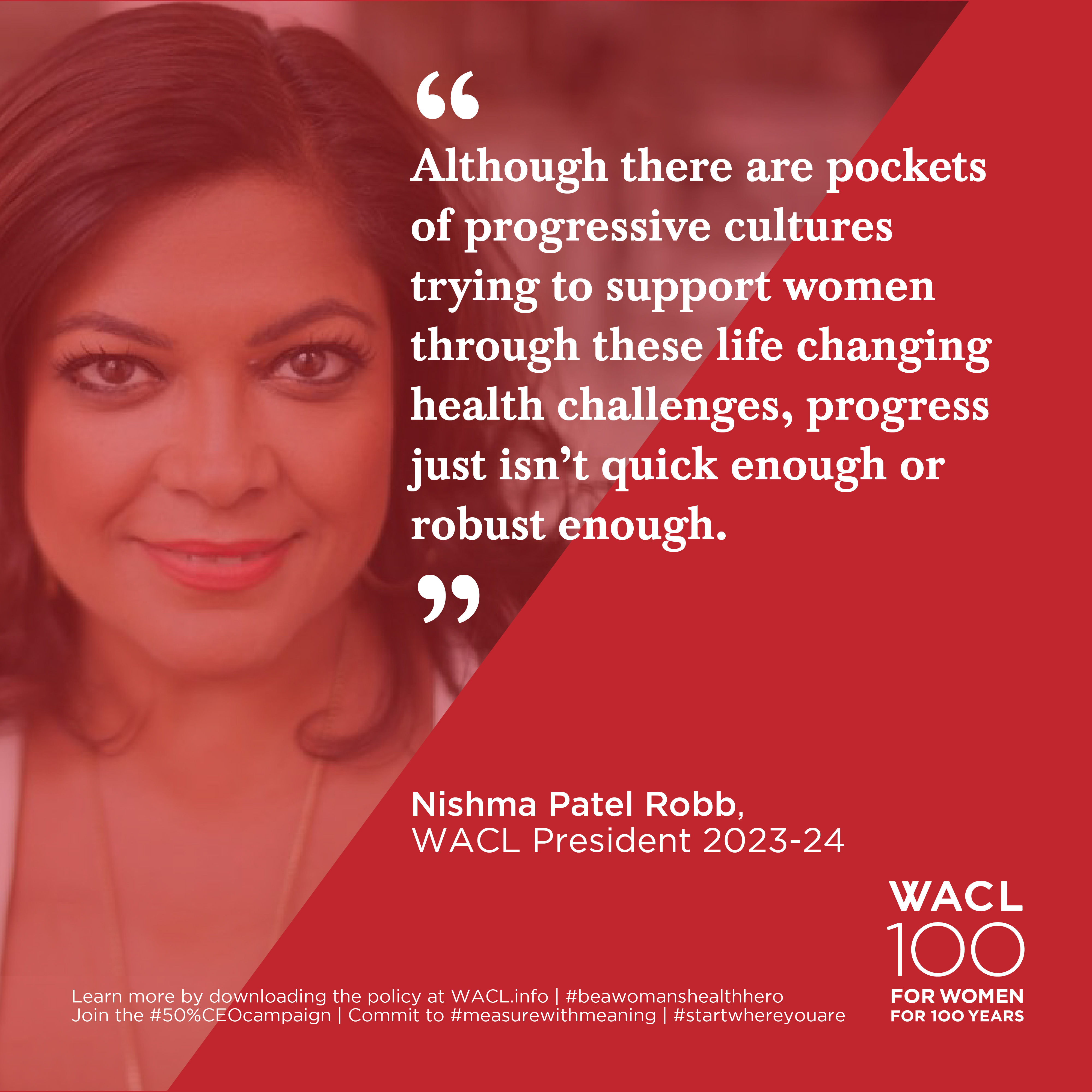
Virgin Media O2 launches summer online safety campaign
Virgin Media O2 and Internet Matters spotlight the importance of having conversations about online safety and starting them early

The policy aims to help spearhead a sea change in how the industry retains and supports midlife women.

1 in 10 women who have worked while going through the menopause have left a job because of their symptoms.
A quarter of perimenopausal or menopausal women consider leaving their careers.
These are two of the hard-hitting statistics that sit at the heart of Women in Advertising and Communication London’s (WACL) drive to better support perimenopausal and menopausal women in the workplace.
WACL has launched an open-source menopause policy ‘A Menopause Policy’ for everyone in a drive to spark change across the industry.
Nishma Robb, president of WACL, explains: “Although there are pockets of progressive cultures trying to support women through these life changing health challenges, progress just isn’t quick enough or robust enough.”
WACL’s policy includes commitments to offering flexible working such as early office leaving time to avoid the (hot) rush hour on public transport, welcoming a relaxed dress code that embraces looser fabrics, the option to turn the camera off on calls when not feeling comfortable and paid sick leave for menopause symptoms.
Launched on World Menopause Awareness Day, WACL is passionate that the policy is not a one-off awareness raising exercise. Policy alone will not make progress if managers are neither aware nor educated on how to put the policy into practice.
With this in mind, WACL is calling on the industry to not just download the policy, but adapt and adopt its recommendations. Crucially WACL also stresses the importance of educating managers about menopause and supporting midlife women in their teams.
Practical investment and support can help to stop the steady drain of midlife women from the industry and drive change. For example, at EssenceMediacom 40% of the senior women who took part in a trial menopause coaching programme have since been promoted.
Kate Rowlinson, CEO of EssenceMediacom and head of WACL’s committee on menopause, explains: “We know that menopause affects women in many different and unique ways so our coaching programme has been a huge success, allowing us to keep women in the business who we may have lost.”
Nishma Robb, President of WACL aims to build momentum behind WACL’s "50% CEO campaign", which is pushing to have half of the chief executive roles in the industry filled by women by 2045. Currently, only 30% of CEO roles in advertising and communications businesses are held by women.
Although it is relatively well accepted now that women have more complex health needs throughout their career, these health conditions remain one of the biggest barriers to women progressing. Focussing on inclusive policies and education is key to reducing the stigma and the impact of the health-related barriers women face in the workplace.
The policy is part of WACL’s ‘Be a Women’s Health Hero’ initiative which will address the four main life-changing challenges for women: periods, fertility, maternity and menopause.
Women and Equality Committee’s report on menopause in the workplace contains a significant evidence base showing the impact of symptoms, with too many women relinquishing leadership roles, stepping back from promotion, reducing their hours, struggling to cope or leaving work altogether because they are not getting adequate care and support in the workplace.
This is also impacting the gender pay gap, which increases for women in their 40s and 50s despite many of these women being at the peak of their careers.
For the creative industries, which live or die by connecting with culture, stopping the steady flow of the world’s most powerful consumer group from their workplaces is a business imperative.
To download a Menopause Policy for Everyone please click here.


Looks like you need to create a Creativebrief account to perform this action.
Create account Sign inLooks like you need to create a Creativebrief account to perform this action.
Create account Sign in